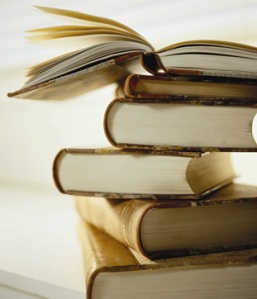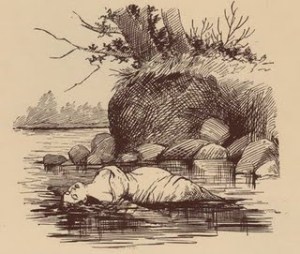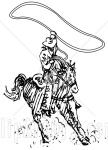The inevitable end-of-year best list
 My list of best books I read this year is composed of books that were published this year, at least in fiction. That's not usually the case, but I think it's part of the deal with working at a library (and getting ever-increasing access to advanced review copies, both in print and digitally).
My list of best books I read this year is composed of books that were published this year, at least in fiction. That's not usually the case, but I think it's part of the deal with working at a library (and getting ever-increasing access to advanced review copies, both in print and digitally).
Fiction:
This year for me, fictionally, was all about the sequels. Like everyone else I adored Bring Up the Bodies, Hilary Mantel's Booker Prize-winning follow-up to her Booker Prize-winning Wolf Hall. If you can't get enough of the Tudor era, having a fine novelist at the top of her form inhabit that era -- from a previously underrepresented viewpoint, that of Henry VIII's minister Thomas Cromwell -- is literary nirvana.
Also in Tudor-land but with a contemporary, and paranormal, perspective was Shadow of Night by Deborah Harkness, sequel to her blockbuster A Discovery of Witches. In this book, the protagonists travel back to the time of Elizabeth I in search of answers about their history, their destiny and the powers of academic scholar and reluctant witch Diana Bishop. The best shorthand description I can come up with for these books is Harry Potter for Grownups.
I also loved Crucible of Gold, the seventh entry in Naomi Novik's Temeraire series Napoleonic Wars -- with dragons! No honestly, it's awesome -- of course thanks to George R.R. Martin and HBO dragons have a little more cultural cache than when I first started raving about this series. To be perfectly honest, the last couple entries weren't as engaging as the first three, but I was invested enough in the series to keep going and I'm so glad I did. The newest book is definitely back on track. Here's hoping she keeps going with this story as long as Patrick O'Brian did with his Aubrey-Maturin series.
Nonfiction:
I'm going to go with the collected works of Rick Geary, who does historical true crime in graphic format under the rubric A Treasury of Victorian Murder and A Treasure of 20th Century Murder. I read a bunch of them this year and I can't pick a favorite. They're all fantastic.
I also loved Out of Sheer Rage by Geoff Dyer, his memoir/meditation on not really getting down to writing a critical study of D.H. Lawrence, though the book does include many interesting considerations of Lawrence as Dyer checks out various Lawrence hangouts. Dyer will be here for the Key West Literary Seminar next month (both sessions!) and I am simultaneously dying to hear him in person and terrified to hear what he'll have to say about Key West. He is hysterically, viciously funny on the less appealing characteristics of various tourist towns he visits in Out of Sheer Rage so I'm guessing we'll be in for it from him, sooner or later.
Honorable mentions:
People Who Eat Darkness by Richard Lloyd Parry -- Contemporary true crime done extremely well, with nuance and compassion. Blessedly free of sensationalism and righteousness.
Live By Night by Dennis Lehane -- Another sequel of sorts, a follow up to The Given Day and even better, in my opinion. Set in Boston and Tampa during Prohibition. Fans of Boardwalk Empire should check it out.
Gone Girl by Gillian Flynn -- The bestseller that keeps on going -- and for good reason. I gulped this one down in just a couple sittings.
The Twelve by Justin Cronin -- Yes, yet another sequel, this one to the post-viral-vampire-apocalyptic The Passage. He jumps around in time and wields a huge cast of characters and you manage to stay with him. As with Mantel and Harkness, I'm now trying not to count the days until the final installment in the trilogy.
I can't get enough of end-of-the year best lists. If you're like me you can't do better than this source, a blog by Large-hearted Boy. In the individual list category, I loved this one. And I appreciate the large-mindedness of NPR in their different categories. They even acknowledge that smart people read romance!



 I wish my obsessive-compulsive tendencies were in the housecleaning vein, but unfortunately they are limited to useless tasks like carefully keeping track of what I have read. And why? Am I supposed to be earning gold stars from someone? I don't know why I do this. But I do -- and this year, I kept more careful track than ever, with each book noted by fiction vs. nonfiction, if it came from a library, whether I read it for review, etc. etc. I can only blame this on working in a library, where our job is to keep track of things, and classify them. It turns out I like cataloging.
The good news: I read almost twice as much this year as last. That, too, is probably due to my new job. Not that I read on the job -- a common but mistaken belief about working in a library -- but being surrounded by books all day and learning about lots of newly published books probably inspired me. Not to mention having a job that truly is limited to 40 hours a week most of the time, unlike any job in journalism.
I wish my obsessive-compulsive tendencies were in the housecleaning vein, but unfortunately they are limited to useless tasks like carefully keeping track of what I have read. And why? Am I supposed to be earning gold stars from someone? I don't know why I do this. But I do -- and this year, I kept more careful track than ever, with each book noted by fiction vs. nonfiction, if it came from a library, whether I read it for review, etc. etc. I can only blame this on working in a library, where our job is to keep track of things, and classify them. It turns out I like cataloging.
The good news: I read almost twice as much this year as last. That, too, is probably due to my new job. Not that I read on the job -- a common but mistaken belief about working in a library -- but being surrounded by books all day and learning about lots of newly published books probably inspired me. Not to mention having a job that truly is limited to 40 hours a week most of the time, unlike any job in journalism.